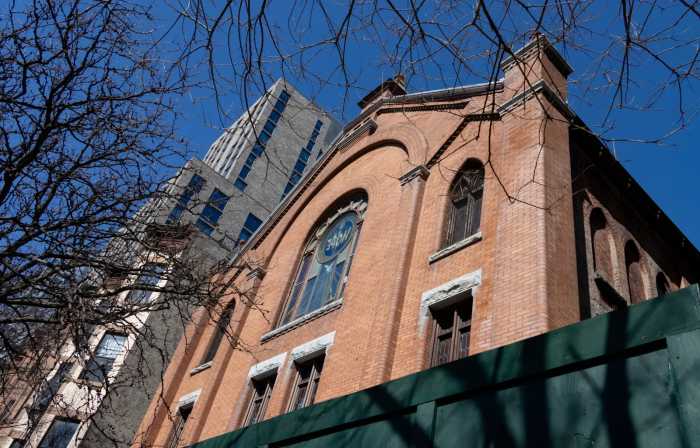Famed Chinese artist and activist Ai Weiwei clashed with a fellow creative-type during a discussion between the pair at the Brooklyn Museum on Saturday, defending his right to recreate a photo of a dead Syrian toddler in a heated exchange.
Ai told Cuban artist Tania Bruguera he didn’t “give a damn s—” about those who criticized him for posing for a photo imitating 3-year-old refugee Aylan Kurdi — whose body was photographed after washing up on Turkey’s shores last year — arguing that his job is to raise questions, not please others.
“I am an artist, I am not a priest,” he said to applause from the crowd. “If I cared like everybody else cared, I wouldn’t be an artist.”
Bruguera — an installation and performance artist who, like Ai, has been arrested and censored in her communist-led homeland — pushed him further on the question, but Ai fired back by quizzing her on just how many people died in the Mediterranean Sea this year. After a few incorrect guesses, Bruguera protested that she mostly focuses on Cuba, and the cantankerous Ai accused her of not being a real political artist.
“Exactly — you don’t know the number, because you are not a full political artist,” he said, eliciting audible gasps from audience members. “You are only a Cuban political artist.”
Ai’s appearance at the Prospect Heights gallery was his first appearance at the gallery since the Chinese government threw him behind bars for 81 days and seized his passport in 2011. The museum hosted an exhibition of his work in 2014, but had to organize it by phone and e-mail.
The artist lived on Lorimer Street in Williamsburg for a period in the ’80s while studying at the Parsons School of Design, and reflected on the how much the neighborhood has changed during the 90-minute conversation.
“At that time the area was very quiet, there was no artists,” he said.
Audience members said it was a blast seeing and hearing the superstar artist in person, and one said seeing him in the flesh showed him that Ai is a regular human being and gave him hope that he can achieve the same levels of success.
“It was thrilling. To see someone like that who’s been such a hero for so long and to see him kind of living and breathing and not this faraway figure is a reminder that he’s a person and this is doable,” said Julian Hornik, who travelled from Connecticut for the talk. “This is a person who did this and not some god-like entity.”

























